News
-
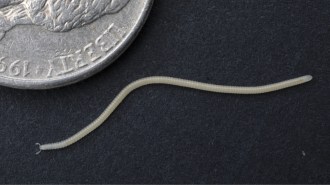 Animals
AnimalsThe newfound Los Angeles thread millipede is ready for its close-up
Found in Southern California, Illacme socal is the third of its genus found in North America, with the rest of its relatives scattered around the world.
-
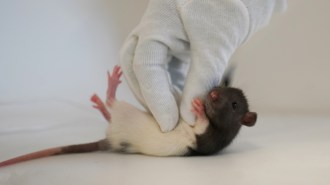 Neuroscience
NeurosciencePlayful behavior in rats is controlled by a specific area of their brains
Cells in a brain region called the periaqueductal gray are activated by chasing and tickling, a study finds. Blocking their activity reduces play in rats.
By Simon Makin -
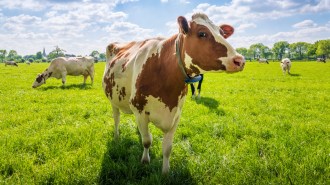 Climate
ClimateCow poop emits climate-warming methane. Adding red algae may help
Adding a type of methane-inhibiting red algae directly to cow feces cut down methane emission from the poop by about 44 percent, researchers report.
-
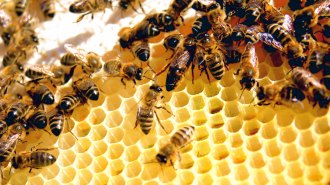 Math
MathHow geometry solves architectural problems for bees and wasps
Adding five - and seven - sided cells in pairs during nest building helps the colonyfit together differently sized hexa gonal cells , a new study shows.
-
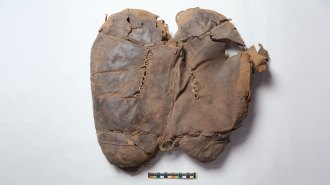 Archaeology
ArchaeologyThe oldest known horseback riding saddle was found in a grave in China
The well-used saddle, dated to more than 2,400 years ago, displays skilled leather- and needlework. Its placement suggests its owner was on a final ride.
By Bruce Bower -
 Health & Medicine
Health & MedicineMany sports supplements have no trace of their key ingredients
A chemical analysis of 57 supplements found that 40 percent had undetectable amounts of key ingredients. Only 11 percent had accurate amounts.
By Meghan Rosen -
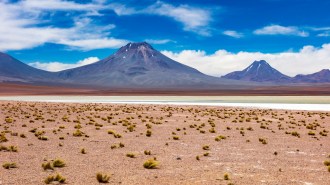 Environment
EnvironmentThe most intense sunlight on Earth can be found in the Atacama Desert
On the Chilean Altiplano plateau, every square meter of the ground receives, on average, more solar power than Mount Everest and occasionally almost as much as Venus.
-
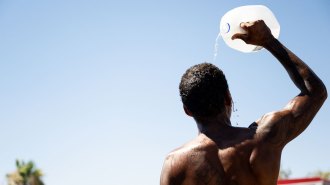 Climate
ClimateHere’s how much climate change increases the odds of brutally hot summers
Climate change made 2023’s record-breaking heat waves in the United States, Mexico, China and southern Europe much more likely, new simulations show.
By Nikk Ogasa -
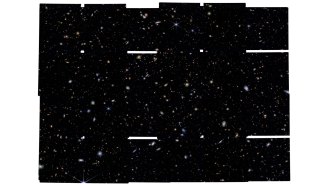 Space
SpaceThe James Webb telescope may have spotted stars powered by dark matter
Three objects in the distant universe bear signs of hypothesized “dark stars,” researchers claim, though others say more definitive data are needed.
By Skyler Ware -
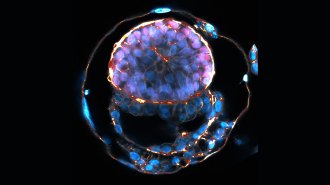 Humans
HumansHuman embryo replicas have gotten more complex. Here’s what you need to know
Lab-engineered human embryo models created from stem cells provide a look at development beyond the first week. But they raise ethical questions.
-
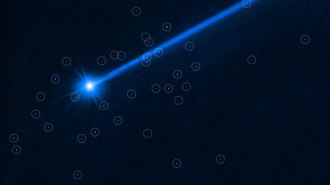 Planetary Science
Planetary ScienceNASA’s DART mission lofted a swarm of boulders into space
Hubble telescope images of the asteroid Dimorphos reveal a halo of 37 dim, newfound objects — most likely boulders shaken loose from the surface.
By Sid Perkins -
 Psychology
PsychologyTime in nature or exercise is touted for happiness. But evidence is lacking
A review of hundreds of studies finds limited strong scientific evidence to support many common recommendations for leading a happier life.